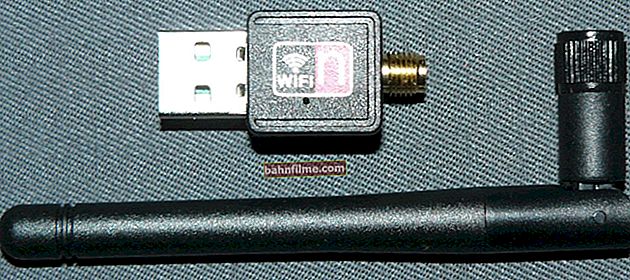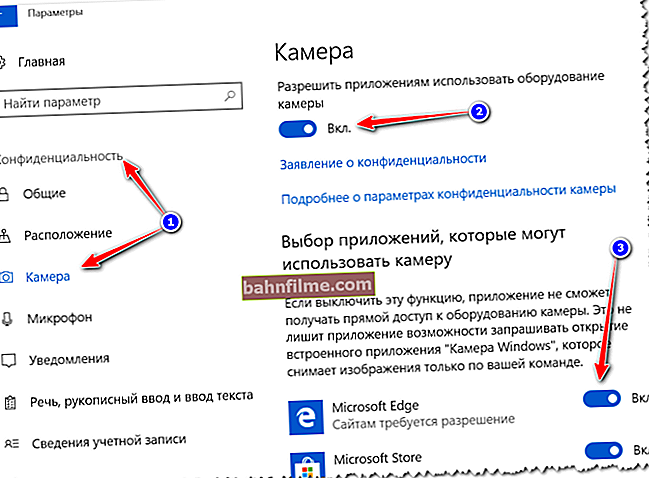 Good day.
Good day.
This is how it happens "wandering" on the Internet in search of some necessary information, and you come across a foreign site. Judging by the pictures, you understand that your problem is being dealt with there, but you cannot read what is written, because weak in English (or German, or some other ...).
Of course, you can use various online translators, copying and translating the required data by paragraph. However, when you are dealing with a foreign site, it is extremely inconvenient (after all, to work you need to see not only a paragraph, but also a translation of the menu, some notes, and constantly moving from one eye to another is a pleasure ...).
However, now there is an excellent solution: foreign sites can be translated "on the fly" right in the browser itself! Almost all modern browsers support this feature. Below is how to enable this ...
*
Translation of web pages from a foreign language ("on the fly")
Chrome
Link to the office. browser website: //www.google.com/chrome/index.html
One of the most popular browsers naturally has a built-in function for translating sites in foreign languages.
In general, usually the modern version of Chrome (by default) automatically prompts you to translate a web page if its language is different from yours. A small offer window appears in the upper corner of the screen as soon as you enter a foreign site.
If this window is not there, pay attention to the icon in the browser address bar. By clicking on it, you can automatically translate the current web page (see example below).
in the browser address bar. By clicking on it, you can automatically translate the current web page (see example below).

We translate the main page of Wikipedia
Please note that the quality of the translation is pretty good: you can work with the site quite comfortably (just 5-10 years ago one could only dream of such a translation. The meaning of many phrases was simply not translated and had to speculate a lot).

The page is in Russian!
If you do not have such an icon and the browser does not offer you anything at all when you visit foreign sites, then:
- open the settings (page: chrome: // settings / );
- then expand the "Advanced" settings at the bottom of the screen;
- in the "Languages" section, pay attention to the setting "Offer translation of pages if their language differs from the one used in the browser" (enable it if it is disabled for you);
- refresh the page in a foreign language (press F5 in the browser).

Languages - settings in Chrome
If you have a very old version of Chrome, then just update (reinstall) your browser (the link to the official website is given just above).
*
Yandex browser
Link to the browser website: //browser.yandex.ru/
Direct competitor to Chrome. As for the translation: in some ways it is better than in Chrome, in some ways worse. In terms of use, there is no difference: when you open a site in English (for example), an offer to translate into Russian also appears in the top menu. If you agree, you see an optimized page, the translation is of sufficient quality (see example below).

Yandex browser
If you do not get a message about the possibility of translating the page, then most likely the option is disabled in the browser settings. To enable, you must:
- open parameters;
- click on the button for viewing additional options;
- in the "Languages" section, check that there are three checkboxes: "Offer to translate pages whose language is different from the interface language", "Offer translation of words and phrases when selecting text", "Translate words on mouseover and pressing the Shift key".

Languages - Yandex browser settings
Actually, having set such settings, refresh the page (F5 key) and look at the top menu: the browser should offer to translate.
*
Opera
Browser link: //www.opera.com/ru
Translator page: //addons.opera.com/ru/extensions/details/googletm-translator/
Unfortunately, the translator itself is not built into the browser itself. However, there are a large number of different add-ons for translation.I recommend trying the Translator add-on (I gave a link to it just above).
After installing it, you will have a small icon in the upper right corner. When you go to a foreign site - you can click on this icon and you will see a small window:
- you can translate individual phrases and phrases in it;
- or you can follow the link "Translate the active page ..." - then a new tab should open with a full translation of the page.

Translation into OPERA
Translation is carried out by Google technology (by the way, you will be recommended to install Chrome). In principle, then you can follow any links on the site - the next open pages will be automatically translated in this tab (every time you do not need to open the addon!).

A new tab with results opens
*
Firefox
Link to the browser website: //www.mozilla.org/ru/firefox/new/
Link to addon: //addons.mozilla.org/ru/firefox/addon/google-translator-for-firefox/
Firefox is similar to Opera - it also lacks a built-in translator. Therefore, in order to add this function to the browser, you will have to use some kind of add-on (addon). There are, of course, hundreds of them, but after testing about a dozen of them, I still came to the conclusion that Google Translator wins (the link is given above).

The letter "T" in Firefox
The add-on is extremely simple: after installing it, an icon with the letter "T" will appear in the top menu of the program. It is enough to click on it with the left mouse button - and your page will be translated. Fast and convenient!
*
That's all, good luck to everyone!









